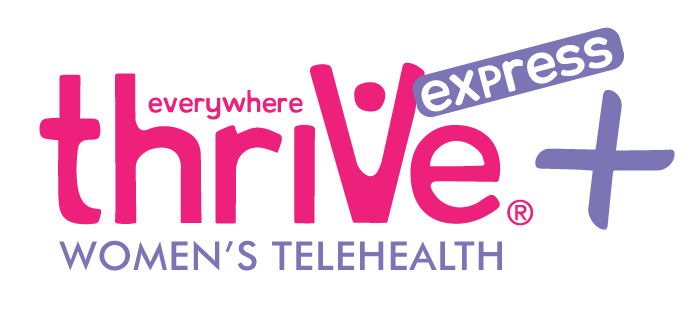What’s the maximum how many days to confirm pregnancy? How long do you really have to wait to find out? We understand. Waiting to get answers about your health is super hard, and pregnancy is a big deal. It’s normal to feel anxious about it. But we don’t want you to feel like you’re alone, because you’re not.
At ThriVe+, we’re here to support you through this. No matter what happens, we’ll be here for you. And that includes getting you accurate medical info so you can make the best health decisions for yourself. Let’s get right to it.
Tell me more about pregnancy tests
Pregnancy tests check for a hormone called hCG in your body. This hormone is only there when you’re pregnant.1 That’s important to know when you’re wondering the maximum how many days to confirm pregnancy.
There are two main types of tests:
1. Urine Tests: You can take these at home. You pee on a stick or into a cup, and the test shows a result, usually with lines, a plus sign, or words like “pregnant” or “not pregnant.”1
2. Blood Tests: These are done at a doctor’s office. They measure hCG in the blood.1

How do I know when to take a pregnancy test?
It’s common to feel anxious if you’re experiencing unusual symptoms. Some early signs of pregnancy can appear even before you miss your period.2 If you think you’re pregnant and looking for the maximum how many days to confirm pregnancy, check if you have any of these symptoms:
1. Nausea and Vomiting
– Often called “morning sickness,” though it can happen at any time of the day.
– These symptoms can start one to two months after you become pregnant.2
2. Tender or Swollen Breasts
– Hormonal changes can make your breasts sensitive, sore, or swollen. But as your body gets used to the hormonal changes, you’ll probably feel less discomfort.2
3. Fatigue
– Feeling unusually tired is common during early pregnancy. This might be due to high levels of the hormone progesterone.2
4. Frequent Urination
-It’s common to feel like you need to pee — a lot! In early pregnancy, your body makes more blood, and this causes your kidneys to work on overdrive.2
5. Mild Cramping and Spotting
– Known as implantation bleeding, light spotting and cramping can occur when the fertilized egg attaches to the lining of the uterus (usually about 10-14 days after the egg and sperm meet).2
– Not all women have these symptoms. But you might experience cramping and spotting around the time you’d expect your period — sooner than the maximum how many days to confirm pregnancy with a pregnancy test.2
6. Mood Swings
– Hormonal changes can affect your mood, making you feel more emotional or weepy than usual.
– These mood swings can start in the early stages of pregnancy.2
7. Food Aversions or Appetite Changes
– You might notice changes in your appetite, such as changes in your food preferences or being repelled by certain smells or tastes.
– These changes can start early in pregnancy and are also caused by hormonal shifts.2
8. Dizziness and Lightheadedness
– Pregnancy can cause your blood vessels to quickly get bigger, and can cause your blood pressure to drop. This might lead to you feeling dizzy or lightheaded.3
– This can happen early in pregnancy.3
9. Constipation
– Hormones can slow down your digestive system, leading to constipation.2
– Eating more fiber, drinking plenty of water, and staying active can help ease this symptom.2
What to do if you have these symptoms
Recognizing these symptoms early can help you take the right steps for your health and well-being. If you’re unsure or need support, If you’re searching for the maximum how many days to confirm pregnancy, we’re here to help. ThriVe+ is here to support you with no-cost testing and compassionate care.
What about very early miscarriage?
Sometimes, the pregnancy ends on its own after the fertilized egg is attached to the lining of the uterus.4 You might get a positive test because your body started producing hCG, but then you get your period because the pregnancy didn’t progress. This usually means the embryo didn’t implant properly.4
What’s different about an early detection pregnancy test?
Early detection pregnancy tests are more sensitive to hCG. If you’re concerned about the maximum how many days to confirm pregnancy, you might’ve heard about these. Some of them can give you a positive result a few days before your missed period.1 Regular tests are accurate starting from the first day of your missed period.
Could the pregnancy test be wrong?
Yes, sometimes. Here’s how:
– False Positive: This is very rare. But it can happen due to taking certain medications or having some medical conditions. Or (like we mentioned earlier), it might indicate an early pregnancy loss.4
– False Negative: More common if you test too early, or don’t follow the test instructions correctly.4
If you get a negative result but still think you’re pregnant, wait a few days and test again.

What do I do if my pregnancy test is positive?
1. Stay Calm: Take a deep breath. It’s okay to feel a mix of emotions.
2. Confirm the Pregnancy: Make an appointment at ThriVe+ for a no-cost, lab-quality pregnancy test to confirm your result.
3. See a Healthcare Provider: They’ll help you understand your options and next steps, whether you plan to continue the pregnancy or consider other options.
4. Start Prenatal Care: If you decide to continue the pregnancy, early care is important for your health and the baby’s.
So, finding the maximum how many days to confirm pregnancy just depends on how long ago you had sex, and finding the other pregnancy symptoms you may have. Like we talked about, follow the instructions on your test for the most accurate results. Check that you have some of the early pregnancy symptoms before you test – especially a missed period. If you’re unsure or want a more reliable test, visit ThriVe+ for support and a lab-quality test at no cost to you.
Sources:
1https://www.fda.gov/medical-devices/home-use-tests/pregnancy
3https://www.mayoclinic.org/diseases-conditions/low-blood-pressure/symptoms-causes/syc-20355465






